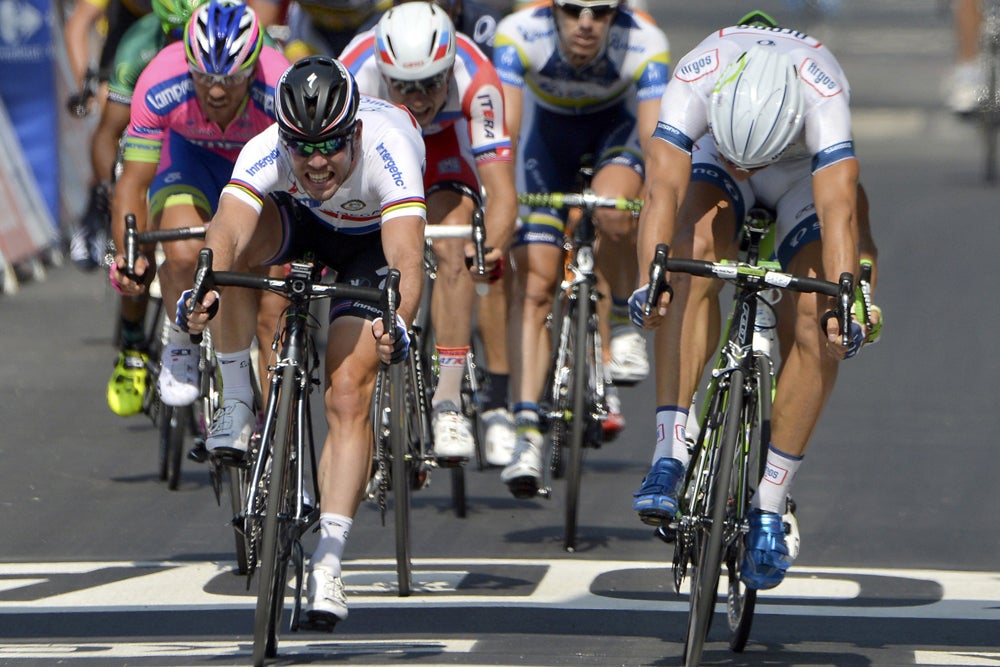With four stage wins, Kittel spurs German renaissance at the Tour

Marcel Kittel (right) narrowly edged sprint king Mark Cavendish in stage 12. Photo: Graham Watson | <a id="www.grahamwatson.com" href="http://grahamwatson.com">www.grahamwatson.com</a>
TOURS, France — Marcel Kittel (Argos-Shimano) won four drag races, and came over the top of Mark Cavendish (Omega Pharma-Quick Step). That almost never happens.
Tony Martin (Omega Pharma) smothered the field in a spectacular time trial just a week after a leaden crash in Corsica nearly knocked him from the Tour.
André Greipel (Lotto-Belisol) powered to a sprint win — not an easy task, given the quality of Cavendish and Greipel’s German countryman, Kittel.
German riders took six stages at the 100th Tour de France, signaling a return to the highest level of the sport for a proud nation hampered by doping scandals and the milquetoast confessions of its stars.
Kittel joined countryman Didi Thurau in winning at least four stages at one Tour (Thurau won five in 1977). As a nation, only once before have German riders taken six collective stages in a single lap around France — in 1977, in which Thurau and Klaus-Peter Thaler competed as West Germans.
But those names and records are dusty now, and after Jan Ullrich’s admission to PED use and a long spell without a star, it was high time for good news.
“It was always a goal to push German cycling again. I think we’ve done a really good job now at the Tour de France,” said Martin. “I’m also proud of my German colleagues. I really hope that the fans see our performance. Maybe some fans went away from cycling and maybe come back now.”
Maybe.
This is a nation accustomed to winning on the highest level, a nation of Erik Zabel (six green jerseys, consecutively) and Ullrich, who was one of the sport’s best riders at one of its worst moments. The current generation of cyclists is sensitive to German reluctance, and men like Kittel, and his Argos teammate John Degenkolb, seem to feel a responsibility to get it right this time around, and win while doing so.
“I’m definitely really proud to be a part of the success of German cycling again, and I hope that we can change a lot. Because in the past there has been a lot of bad things, and cycling is not the same any more that it was 15 years ago,” said rising talent Degenkolb. “I think we now really have the possibility to make a difference and to make cycling popular again, and to let the people trust us again. We’re just doing our job and that’s it … and that’s important for us.”
A bulk of the success has come from Kittel this year in France. He won the race’s opening stage into Bastia and was rewarded with two things: his first win at the Tour, and a yellow jersey. He also rewarded his country with a sense of relief, and belief.
“I’m very proud how the race developed for me and for the whole team. That we have already five wins as German riders in the Tour de France is a very big thing, and I’m very proud of that achievement,” Kittel said after his stage 12 victory, before triumphing in Paris on the final day of the race. “I think the most important thing is that we can do some advertising for our sport, that we can still be successful here, and that we can give something back to the German cycling fans.”
Likely, he and his countrymen will keep on giving.